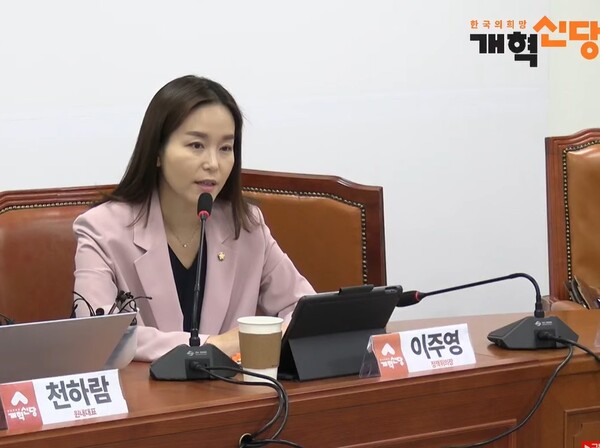A doctor-turned-lawmaker has criticized a recent court ruling that convicted a doctor of professional negligence and manslaughter for prescribing Macperan to a Parkinson's disease patient in his 80s.
The Changwon District Court sentenced a doctor to 10 months in prison and two years of probation for administering Macperan injections to a Parkinson's disease patient in his 80s, causing injuries, including generalized weakness, speech impairment, and worsening Parkinson's disease.

Commenting on this ruling, Rep. Lee Ju-young of the New Reform Party, a medical doctor, said, “Another verdict is shaking the medical community. If we are forced to use only drugs that are 100 percent safe according to the literature and without professional judgment that the benefits outweigh the side effects, there is no drug in the world that we can use.”
“There is only one drug approved for vomiting in Korea – Macperan -- she said. “Although there may be risks in children and older adults, it is used with the expectation that the benefits outweigh the risks because there is no other drug available.”
Rep. Lee also criticized the medical reality where doctors and patients cannot use appropriate drugs even when available, bound hand and foot by the “HIRA (Health Insurance Review and Assessment Service) Medicine.”
“For instance, ondansetron is also effective for vomiting, but in Korea, unless you are undergoing chemotherapy, if you use ondansetron for vomiting, the doctor becomes a bad guy for overtreatment,” Lee said. “The Korean people suffer damages due to their government, which prevents them from using (medicines) according to the HIRA’s notifications, which are not even made public.”
“If doctors use medicine and side effects occur, they are criminally punished for injury. If they don't use medicine, they are blamed for passive treatment and missing the timing of cure,” Lee said. “Even if the whole world recognizes (Korean medicine), if doctors use medicine that HIRA doesn't recognize, they are accused of overtreatment, face reduced medical fees, and must pay refunds five times the cost of the medicine.”
"The government should not tell doctors it would do this or that for them. What they need is (an environment) where they can be brave and do their best and develop themselves by trusting their expertise,” she added.
Related articles
- Nurses may benefit from law that lessens penalties for medical accidents
- Seoul moves to ease penalty on medical malpractice to placate physicians
- UK’s competition rate for cardiothoracic surgery is hefty 19.57 to 1. Why’s that?
- Doctors condemn court ruling over metoclopramide use in Parkinson's patient
- Cloned stem cells can replace dead dopamine cells, offering hope for Parkinson's cure

